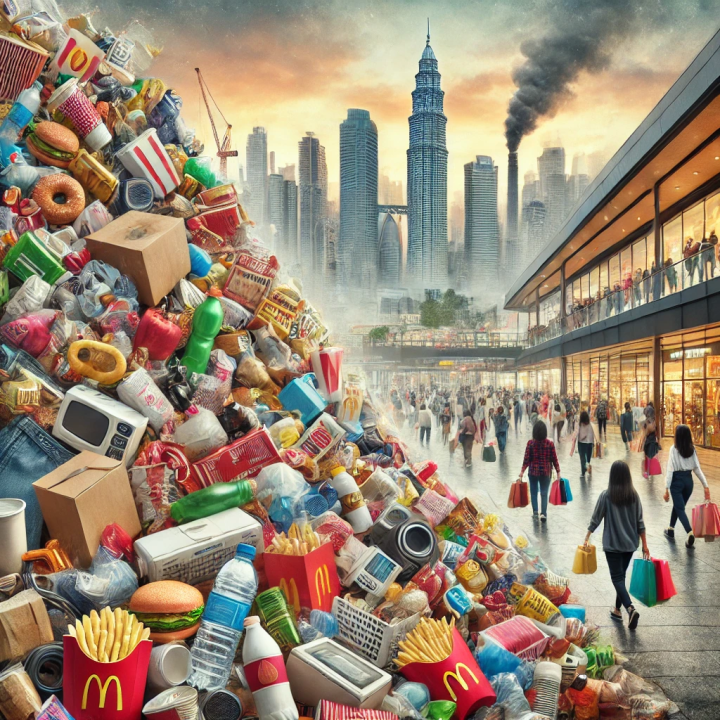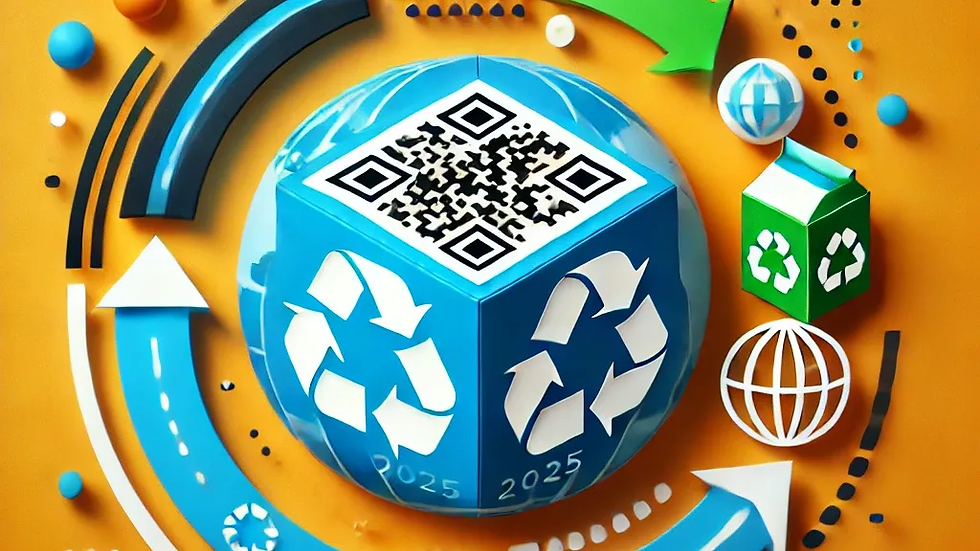Falling deep into over consumption
- WebBattalion
- Apr 25, 2025
- 4 min read

My recent focus has been on the sustainable packaging market; where we are, what needs to happen for the best possible outcome in the next decade. Unpacking this immensely complex subject has been incredibly rewarding and I have been supported by an incredible group of packaging leaders whose expertise has been invaluable in understanding the challenges and opportunities that are faced.
I mention this as this research has yielded a number of incredible discoveries - at least they appear this way to me - that all point to how far the ripples spread when it comes to sustainability. For example; we have a massive waste problem. We are creating billions of tons of solid waste every year. That is billions with a B. Of this mountain of waste, the vast majority is simply buried or dumped. Certainly in the US there is lots of space to bury our trash and not have it make an impact on our lives as consumers; in Europe where space is more at a premium there is a significant move to reduce this problem, with a number of countries like Switzerland having no landfill at all.
Why does any of this matter? It is symptomatic of the real threat to our desire to embrace a sustainable and circular future. Put simply, capitalism is not conducive to sustainability. Consumer goods companies are rewarded for their growth, always selling more, making more profit, opening more markets, reaching more consumers. The executive teams' incentives are all financially driven. The shareholders want greater dividends and performance, quarter after quarter.
This model is completely at odds with sustainability. Consumers are encouraged continue to get more and more. Supersize the meal, save money with the bulk purchase, have a packet of 50 cookies. This is not a one way street, we demand as consumers to buy as much as we want and not be moderated in our consumption by companies. Our response to portion control is one of frustration that we are being treated like children. It is my right to have as much as I want and no one can tell me any different.
All of this brings me to my point, and the title of this article. Over consumption. Our entire consumer model is designed to sell more, take more, use more.... and waste more. This oil tanker does not turn, and it is headed straight for rocks. The problem with all the waste generated by over consumption is not limited to simply creating a mess. It may be clogging up our landfill, leaking into our water and wasting resources to be made , not used and thrown away, but we grasp this right to buy whatever we want and continue to be oblivious of the impact.
Global warming is not a theory, it is a scientific fact, and one of the more worrying facts recently given is that we are about 200 Billion tons of emissions away from being in a very bleak state that will take at least 5 years to course correct. So? That's a massive number you might say, but it is not so big when you consider our 40 Billion a year we currently emit. We are less then 5 years away from some very stark impacts, and that is skating past the impacts we are already seeing in the world today. 12 months of hottest month ever, Droughts where they should not be, rain where it should not be, even locally in Los Angeles we had snow last year... snow in southern california. We can not keep putting our heads in the sand and pretending it will just all go away.
The global food system from production through consumption is responsible for about 18 of those 40 billion tons... and food waste alone is about 4.5 billion tons. This is just food production and waste, this is not even including packaging waste, logistics of moving all this product around the world or even the other markets that create waste like beverages, cosmetics, pharmaceuticals, appliances, automotive and construction.
What does all this mean in the context of sustainability? Over consumption is the polar opposite direction to where we want to go. Every time we buy something and throw away leftovers or leave waste or litter we are adding to the ever increasing pile of waste that is accumulating on this planet every year. 2.2 billion tons of it. The problem is that while we are putting waste into landfill or other inefficient systems that do not retain or reuse or recycle them we can never achieve the sustainability objectives companies and governments and even consumers are setting.
The end result is that no matter how efficient the systems we set up are or how strict the legislation is until we address the over consumption elephant in the room, it is never going to be possible to reach a circular economy.
Paradoxically, it is almost impossible for this problem to be solved. The way our entire consumer goods market is set up remains dictated by short term financial performance, and consumers are not going to change their desire to be free to purchase whatever they want. It is so embedded into the fabric of the market that, like a multilayer and multi material package we can not separate it.
Even if we can not resolve this issue overnight or even over decades, little steps taken can make a big difference if we all do something. By asking myself " Do I need... or do I want X?" I can at least think about my purchase and occasionally decide not to buy the bulk package of cookies, or the extra large 2 Lbs of cheese, and balance the need for economising my shopping with the ability to consume it all. It is not going to solve the problem but if enough of us do this it could dramatically lower the waste emissions, or at least enough to give us another year or two to arrest our climate impact.




Comments